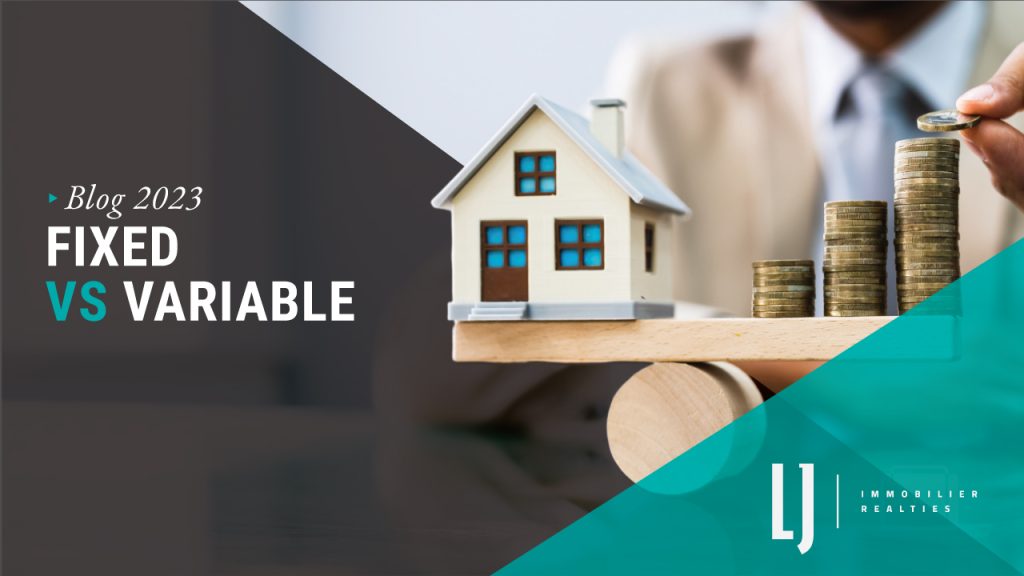
People often ask us which option is more advantageous for their mortgage – a fixed rate or a variable rate? How do you choose? Which one makes the most sense for the most people? Today, we’re walking through the differences so you can make the best choice for your situation.
What is fixed interest?
A fixed interest rate is very, very simple. These rates will not change during the term of your mortgage, which is usually about five years. That’s the most common term we’re seeing with banks right now.
What is variable interest?
Variable interest rates are usually based on the prime rate in Canada. Prime rate is one of the major lending rates across the country. What banks will usually do is give you prime minus a discount. Unlike fixed, if the rate changes during your term, then your personal mortgage rate will fluctuate as well.
What are the benefits and drawbacks?
If you were to break your term early – let’s say you want to sell your property or need to leave for whatever reason – a variable rate may be more advantageous to you. The penalty on a variable mortgage is three months of interest, whereas if you compare that to the penalty on a fixed mortgage, you’re looking at a much larger amount.
In order to calculate the fixed, it’s a long, complicated formula that the bank uses in order to determine the amount of money they were supposed to earn over that term. That’s essentially
what they’re going to charge you. So if you’re looking for a bit more flexibility, variable is the way.
On the other hand, some people are attracted to the predictability of a fixed mortgage. Sure, there might be savings to be had if the rate dips during your term, but right now, hikes are commonplace. If you want to reduce your overall risk and be able to budget longer-term, then you might be better suited for a fixed rate.
Realistically, the market is constantly in flux – so if you need advice based on what’s happening with housing right now, reach out! Our team is here to help you with whatever questions or concerns you may have.





